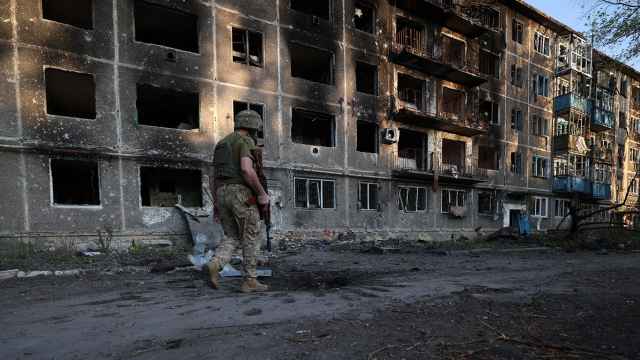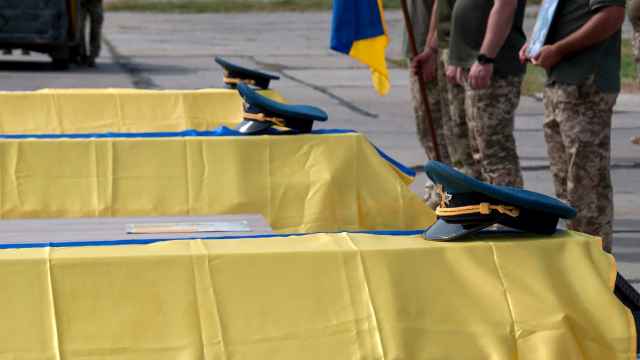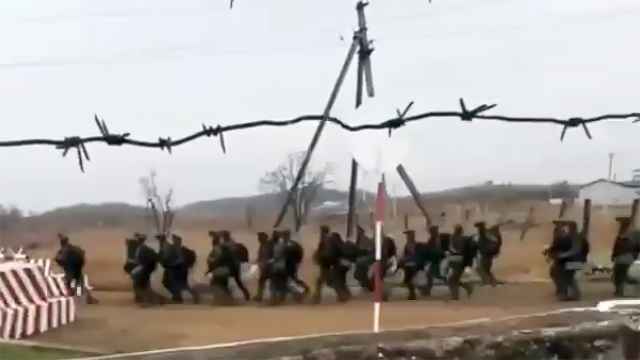Whether the Ukraine war has been good for Russia’s working class is a question that Putin’s inner elite is obviously concerned about. Few in Russia can avoid the obvious fact that it is the sons of the poor, rural and ethnic minorities who are doing the fighting and dying. Looking at the experiences of these workers in-depth exposes numerous problems in understanding the developing relationship between society and the regime, Russia’s creaking infrastructure, and the faults in the war economy.
The issue is in part a demographic one. Yet Russia already has 30% fewer able-bodied young people than it did 10 years ago because of the huge drop in births since 1991. The law of supply and demand says this should be great for blue-collar wages. In line with this, there is evidence of war industries and the army itself outbidding the rest of the economy for these precious men younger than 30.
However, the argument that working-class Russians are beneficiaries of the war does not match up with the reality of blue-collar labor in the country. Historically, pay for these jobs has been very low. Workers have also struggled with high levels of job insecurity, miserable working conditions and some of the worst labor relations in the developed world.
This vacuum-cleaner effect on labor is how some people explain the apparent uptick in accidents and breakdowns in critical infrastructure, such as the mass heating failures in January and the floods across the Urals and western Siberia in April. But a better explanation is simply that Russia has suffered from corruption, neglect and lack of investment during a period when urban areas have seen huge expansion in housing without commensurate investment in utilities.
The same is true of the string of suspicious fires in factories, especially those linked to the war effort. Production within the existing factory and workshop spaces cannot be ramped up without huge risks. There is clear evidence that the culture of cutting corners on safety is worse than ever, especially because of the moratorium on spot checks by the authorities. This negligence is usually a more likely explanation than sabotage. Workers in critical industries are sometimes tag-teaming in three shifts in an aging plant that the higher-ups expect to run nearly 24/7.
For example, in March, more than a dozen gold miners in the Amur region were trapped over 100 meters underground after a rock slide. Alarmingly, the authorities’ rescue efforts were so inadequate that mine workers were forced to dig out their comrades because of inadequate rescue efforts from the authorities, indicative of the general culture of callousness and negligence that reigns in many industries. The search for the miners was eventually called off.
There is a paradox about labor relations and the war effort. However good the pay and conditions appear, workers remain rightly suspicious of the reality. Because of the demographic squeeze, they often realize their power by changing jobs frequently. The resulting labor churn puts massive breaks on productivity and safety. There is strong evidence that the war has made this much worse – especially in poorly paid blue-collar professions like public transport.
The fact is that Russia’s informal economy remains huge, thought to make up 38.2% of GDP. Instead of creating a reserve army of labor, but a temporary refuge for many millions of men from poor quality waged work. Furthermore, undertaking informal work could be a way of avoiding military mobilization by effectively going dark on the authorities, potentially on the same level as working in reserved industries like metallurgy that are exempt from the draft. But little is known about this because, by its very nature, it is hard to research.
The war effort is eating up an increasing amount of state spending. Now that Russia is entering uncharted territory by printing money to fund the war, inflation is back with a vengeance and is most acutely felt in the devalued salaries of ordinary people. At the start of the war, inflation shot up by an estimated 20%. In 2023, some said the actual rate, because of devaluation, was more like 60%. What this means for the average worker, even those in favored occupations, is a progressive erosion of their disposable income — even after accounting for efforts to switch to Chinese imports and domestically produced goods.
This is far from the military Keynsianism that was supposed to trickle down into general consumption and services. On the contrary, as analyst Nick Trickett showed, the Russian economy is very brittle, and shocks from the war lead to bottlenecks, halts in production due to faulty equipment and accidents. Trickett calculates that average incomes are still lower in real terms than in 2013.
For traditional blue-collar workers in manufacturing, living standards are noticeably deteriorating. As one worker told me, wage rises are “like a dog chasing its tail” – the tail being the cost of living.
There is simply not enough money to go around. So much has gone into paying soldiers and compensating their families, as well as replacing lost materiel, that the average worker feels like little has gotten better.
My long-term contacts work in metallurgy, refining, metalworking and raw materials production. Many of these industries are considered so critical, workers are exempt from mobilization. They are careful what they say and self-censor, but their answers are still enlightening. While they report things like receiving a 20% pay rise they also complain about the cost of petrol, the difficulty of getting spares for foreign-made cars, and the increase in the cost of staples like eggs and medicine. Positive statements like "I’m a patriot and a consumer. There is still something in the fridge to eat. I have everything I need," are revealing because of how equivocal they really are. They indicate that behind a facade of normality, even well-placed workers are feeling the pinch.
Some are more forthcoming, saying that wage and pension indexation is a myth. There was a mortgage boom in 2023, but this is subsiding now rates are high.
One young man works for a booming fastenings manufacturer. He has a family and should be eligible for a subsidized mortgage. But says of getting on the housing ladder, “You must be kidding – I haven’t even looked. I know it’s not realistic to get a loan.”
Going into debt to buy white goods and cars with an average interest rate significantly over 10% has become the norm. Many refinance even small loans at disadvantageous rates, relying on bailouts from relatives; 2023 also saw a boom in unsecured payday loans under $1,000. The average loan is just 8,000 rubles ($86). Considering that most take out the maximum sum offered and use it to meet their immediate needs, this reveals the pressure working-class Russians are under.
Fundamentally, even salaries in weapons manufacturing are too low to attract the labor it needs. Moreover, many weapons producers are located far from Russia’s core European regions, meaning they are unattractive to potential labor migrants. Even under wartime conditions, unauthorized strikes and production slowdowns are increasing.
The economic unsustainability caused by the war aside, the social contract is fragile. Putinism was built on the bargain of political voice for sustained growth in economic well-being.
If Putin’s war means stagnation, then what’s the point of Putinism?
A Message from The Moscow Times:
Dear readers,
We are facing unprecedented challenges. Russia's Prosecutor General's Office has designated The Moscow Times as an "undesirable" organization, criminalizing our work and putting our staff at risk of prosecution. This follows our earlier unjust labeling as a "foreign agent."
These actions are direct attempts to silence independent journalism in Russia. The authorities claim our work "discredits the decisions of the Russian leadership." We see things differently: we strive to provide accurate, unbiased reporting on Russia.
We, the journalists of The Moscow Times, refuse to be silenced. But to continue our work, we need your help.
Your support, no matter how small, makes a world of difference. If you can, please support us monthly starting from just $2. It's quick to set up, and every contribution makes a significant impact.
By supporting The Moscow Times, you're defending open, independent journalism in the face of repression. Thank you for standing with us.
Remind me later.








